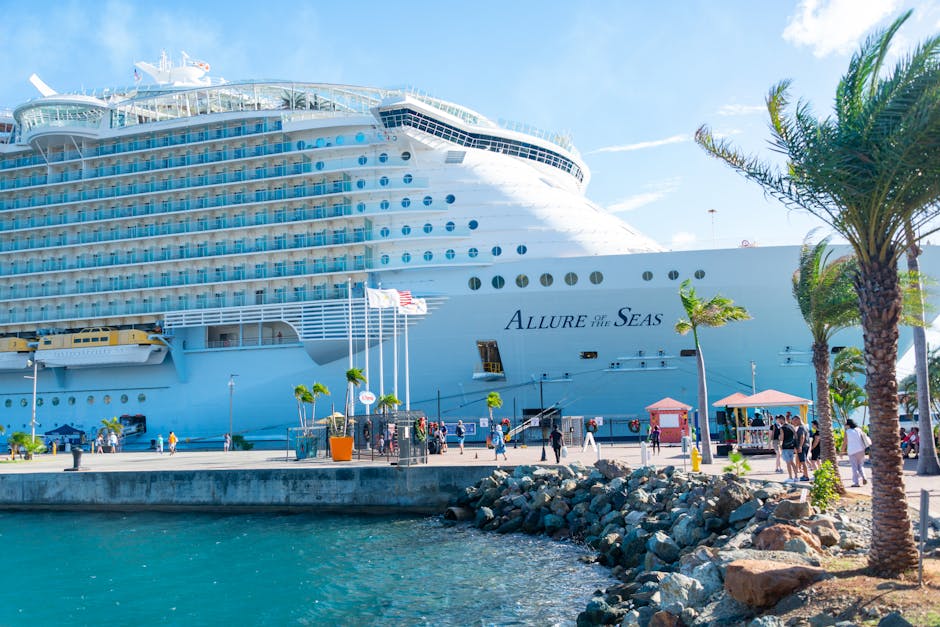What is a Travel and Tour Agency? All You Need to Know
When planning a vacation or business trip, the sheer number of options and logistics can be overwhelming. This is where a travel and tour agency steps in to make your life easier. But what is a travel and tour agency? Simply put, it is a service provider that specializes in organizing travel arrangements for individuals and groups. From booking flights and accommodations to arranging tours and activities, these agencies handle all the intricate details so you don’t have to.
Travel and tour agencies offer a wide range of services, including but not limited to:
- Flight and hotel bookings
- Transportation arrangements
- Guided tours and excursions
- Travel insurance
- Visa and passport assistance
These agencies employ experienced travel agents who have extensive knowledge of destinations and can provide valuable advice tailored to your needs. Whether you are dreaming of a European river cruise, a family vacation to Disney World, or a serene retreat in Yellowstone National Park, a travel and tour agency ensures that every aspect of your trip is meticulously planned and executed.
Call us today to book the trip of a lifetime at www.westernskiestravel.com. With over 20 specialized agents, Western Skies Travel LLC is dedicated to crafting unforgettable travel experiences just for you.
Roles and Responsibilities of Travel Agencies
Travel agencies play a crucial role in the travel industry, acting as intermediaries between travelers and various service providers. The roles and responsibilities of travel agencies are multi-faceted and designed to ensure a seamless travel experience for their clients. Here are some key roles they perform:
- Consultation: Travel agents provide personalized travel advice based on individual preferences, budgets, and travel goals. They help clients choose the best destinations, accommodations, and activities that suit their needs.
- Booking and Reservations: Agencies handle all the bookings for flights, hotels, car rentals, and tour packages. They have access to exclusive deals and can often secure better rates than those available to the general public.
- Itinerary Planning: Travel agents create detailed itineraries that map out every aspect of the trip, ensuring that no detail is overlooked. This includes coordinating transportation, lodging, meals, and activities.
- Problem Resolution: In case of any unforeseen issues such as flight cancellations, lost luggage, or medical emergencies, travel agencies provide support and solutions to resolve these problems quickly and efficiently.
- Documentation Assistance: Agencies assist with the necessary travel documentation, including visa applications, passport renewals, and travel insurance.
- Destination Expertise: Many travel agents specialize in specific destinations or types of travel, providing in-depth knowledge and insider tips that enhance the travel experience.
By handling these responsibilities, travel agencies alleviate the stress of trip planning, allowing clients to focus on enjoying their journey. Their expertise and resources ensure that travelers have a safe, enjoyable, and hassle-free experience.
Different Types of Travel Agencies

Travel agencies come in various forms, each catering to different types of travelers and travel needs. Understanding the different types of travel agencies can help you choose the right one for your specific requirements. Here are some of the main types:
- Retail Travel Agencies: These are the most common type and deal directly with the public. They offer a wide range of travel services, including flight bookings, hotel reservations, and vacation packages.
- Wholesale Travel Agencies: Wholesale agencies sell travel products and services to other travel agencies rather than the general public. They often negotiate bulk deals with airlines, hotels, and tour operators.
- Online Travel Agencies (OTAs): These agencies operate primarily through online platforms, offering a convenient way to compare prices and book travel services. Examples include Expedia, Booking.com, and TripAdvisor.
- Corporate Travel Agencies: Specializing in business travel, these agencies manage travel arrangements for companies and their employees, including flights, accommodations, and meeting venues. They often provide additional services like travel policy compliance and expense management.
- Specialty Travel Agencies: These agencies focus on niche markets or specific types of travel, such as adventure travel, cruises, luxury vacations, or eco-tourism. Their specialized knowledge and connections can make a significant difference in the quality of the trip.
- Inbound and Outbound Travel Agencies: Inbound agencies cater to travelers coming into a particular country or region, offering local tours and experiences. Outbound agencies, on the other hand, specialize in arranging trips for residents of a country to foreign destinations.
Each type of travel agency brings its own set of advantages, tailored to meet the diverse needs of travelers. Whether you are planning a business trip, a family vacation, or a specialized adventure, selecting the right type of agency can make all the difference.
Benefits of Using a Travel Agency

In today's digital age, some travelers may wonder about the benefits of using a travel agency when so many booking options are available online. However, a travel agency offers numerous advantages that can greatly enhance your travel experience:
- Expertise and Knowledge: Travel agents are seasoned professionals with a wealth of knowledge about destinations, travel logistics, and the travel industry. They can provide insights and recommendations that you might not find online.
- Time-Saving: Planning a trip can be time-consuming, from researching destinations to comparing prices and booking accommodations. A travel agency handles all these tasks, allowing you to focus on enjoying your trip.
- Personalized Service: Travel agents offer personalized service tailored to your preferences and needs. They can customize itineraries, suggest unique experiences, and ensure that every detail of your trip is taken care of.
- Access to Exclusive Deals: Travel agencies often have access to special deals, discounts, and promotions that are not available to the general public. This can save you money and provide added value to your trip.
- Assistance and Support: Should any issues arise before or during your trip, your travel agent is there to help. Whether it's a flight cancellation, lost luggage, or a hotel mix-up, having a dedicated professional to resolve these problems can be invaluable.
- Stress-Free Planning: With a travel agency managing all the details, you can avoid the stress and uncertainty that often accompany travel planning. This peace of mind allows you to fully enjoy your travel experience.
- Customized Group Travel: For group trips, whether for family reunions, weddings, or corporate retreats, a travel agency can coordinate arrangements to accommodate everyone's needs, making the process seamless and enjoyable for all participants.
Using a travel agency not only enhances the convenience and quality of your travel experience but also ensures that you get the most out of your journey. Whether you are a seasoned traveler or planning your first big adventure, the benefits of a travel agency are clear and substantial.
How to Choose the Right Travel Agency

Choosing the right travel agency can make a significant difference in the quality and enjoyment of your travel experience. Here are some key factors to consider when selecting a travel agency:
- Experience and Specialization: Look for a travel agency with extensive experience and expertise in the type of travel you're interested in. Agencies that specialize in areas such as river cruises, ocean cruises, Disney and Universal trips, or national park visits can provide invaluable insights and tailored services.
- Reputation and Reviews: Research the agency's reputation by reading customer reviews and testimonials. Positive feedback from past clients can be a good indicator of the agency's reliability and quality of service. Additionally, check for any industry awards or recognitions.
- Accreditation and Memberships: Verify that the travel agency is accredited by recognized industry bodies such as the American Society of Travel Advisors (ASTA) or the International Air Transport Association (IATA). Membership in these organizations often signifies adherence to high standards of professionalism and ethics.
- Range of Services: Consider what services the agency offers. A full-service travel agency should be able to handle all aspects of your trip, including flights, accommodations, activities, and travel insurance. The more comprehensive their services, the more convenient your planning process will be.
- Communication and Support: Evaluate the agency's communication practices. A good travel agency should be easily reachable and responsive to your inquiries. They should provide clear and consistent communication throughout the planning process and offer support during your trip.
- Customization and Personalization: Choose an agency that takes the time to understand your preferences, budget, and travel goals. An agency that offers personalized itineraries and customized travel experiences is likely to meet your needs more effectively.
- Price Transparency: Ensure that the agency is transparent about their pricing and any fees involved. There should be no hidden costs, and the agency should provide clear explanations of what is included in your travel package.
By taking these factors into account, you can find a travel agency that aligns with your travel aspirations and ensures a smooth and enjoyable journey. With the right agency by your side, the complexities of travel planning can be transformed into a seamless and exciting adventure.
Future Trends in Travel and Tour Agencies

As the travel industry continues to evolve, travel and tour agencies are adapting to meet the changing needs and expectations of travelers. Here are some of the future trends shaping the landscape of travel agencies:
- Technology Integration: The use of advanced technologies like artificial intelligence (AI), virtual reality (VR), and augmented reality (AR) is becoming more prevalent. AI can help personalize travel experiences by analyzing customer preferences, while VR and AR offer virtual tours of destinations, helping travelers make informed decisions.
- Sustainable Travel: Environmental consciousness is influencing travel choices, leading agencies to offer more eco-friendly travel options. This includes promoting sustainable accommodations, carbon offset programs, and supporting local communities through responsible tourism practices.
- Personalization: With data analytics and customer relationship management tools, travel agencies can offer highly personalized travel experiences. Customized itineraries tailored to individual preferences and interests will become the norm, enhancing the overall travel experience.
- Health and Safety: In the post-pandemic world, health and safety have become top priorities for travelers. Agencies are expected to provide detailed information on health protocols, travel insurance options, and flexible booking policies to ensure peace of mind.
- Remote Work and Bleisure Travel: The rise of remote work has given birth to 'bleisure' travel, where business trips are extended for leisure purposes. Travel agencies are catering to this trend by offering packages that combine work-friendly accommodations with leisure activities.
- Virtual Customer Service: The adoption of digital communication tools has made virtual customer service more accessible. Agencies are utilizing chatbots, video calls, and instant messaging to provide real-time assistance and support to travelers.
- Experiential Travel: Travelers are increasingly seeking unique and immersive experiences. Agencies are responding by curating trips that offer cultural, culinary, and adventure experiences, providing travelers with deeper connections to their destinations.
Staying ahead of these trends allows travel agencies to offer innovative and relevant services that cater to the modern traveler. By embracing technology, sustainability, and personalization, agencies can create memorable and meaningful travel experiences that stand out in a competitive market.
Call us today to book the trip of a lifetime at www.westernskiestravel.com.